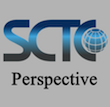The world of Unified Communications (UC) is constantly changing, and innovative strategies are becoming more complex. When I started in this industry over 20 years ago, telecoms strategies were easier to formulate due to fewer technology and provider choices. Flash forward to 2019, the variety and choice, while fantastic for communication, can become overwhelming and tough to navigate.
The Intricacy of a UC Strategy
As more variables are added to the UC equation, strategies are becoming a complex matrix of interdependent choices. In many cases, there is no single correct answer, but there can be many wrong choices if you don’t properly think through a strategy. There is no definitive textbook or one-off training course to help you. (If there was, it would be outdated before it even finishes!) Devising effective strategies is a reiterative process, one where a consultant needs to work closely with their clients to come up with the best strategy for them. It’s a challenging task, but one where I experience extreme job satisfaction, especially when I see clients up and running – delighted with an outcome that addresses their specific communication needs.
So, how do consultants develop a strategy that’s right for an enterprise when there are so many choices? UC consultants will help reduce the number of choices for an enterprise, doing so in a systematic and structured manner.
In devising a strategy, a consultant will need to ask themselves (and the enterprise) several key questions about the project, including:
- What are the goals of the business? How will this project change the business going forward, and how will UC be adopted?
- What are the market drivers for this specific enterprise?
- What UC constraints might there be in a given organization?
- What technologies are applicable, and what are the features and benefits of each?
- What service model should be considered, and why?
- What cost model supports the business case?
Consultants will gather this data in a variety of ways, analyze the information, and make a plan of action designed to best achieve the client’s desired results. This analysis will provide many choices, and it might be tempting to defer all these decisions to a post-strategy Request for Proposal (RFP). This may be the right thing to do for some elements, but other aspects do need to be decided before the RFP stage. Why? Well, it’s very difficult to write an RFP, which genuinely allows a level playing field comparison, if these decisions haven’t already been thought through and at least some type of verdict reached.
Looking at Strategic Decisions in Detail
Let’s take some of the key decisions and break them down to see how consultants come to delivering effective strategies:
• Scope – UC can be anything from telephony to full-blown UC, including team collaboration and room-based video conferencing. Deciding the core scope of the project is vital for a consultant’s business case and ensures an optimum solution. Make sure that you understand the role of each UC component, but only include them if there is a proven need.
• Architecture – Cloud or on-premise? Public, private, or hybrid cloud? Does your organization have a defined policy? It’s unlikely that UC will influence your overall cloud strategy. It’s much more likely to follow. But you may need to consider exceptions if your specific UC needs conflict with the characteristics of a specific architecture.
• Technology – Should you define specific vendor technology in a strategy or leave that for an RFP? Finance colleagues will keep a project agnostic for as long as possible to maximize competition. However, in some cases, it may make sense to define technologies. Particularly, if there are existing investments. Remember, investments aren’t just products – it may include technical teams’ skills or even user familiarity.
This is where the Microsoft question comes into play. Since MS Teams is so tightly integrated within Office365, it can be impractical to write an impartial RFP that enables a fair comparison between Microsoft and other vendors at the RFP stage. If this is the case, then a consultant needs to make the case (for or against) in their strategy.
• Service model – Historically, service models for telecoms services were simple. The customer was responsible for admin, and the supplier for hardware maintenance – anyone remember those simple days? I do.
It’s much more complex now with multiple interdependencies. Who will patch server operating systems? Who will manage phone firmware upgrades? What about outside normal working hours?
It’s vital to at least define the principles at the strategy stage. A matrix of responsibilities can help – both for budgeting and at the RFP stage.
• Cost model – How does an enterprise want to pay? CapEx or OpEx? Fixed price or consumption-based? What accounting period will the business case be based upon? Many potential models often offer differing outcomes. Consultants must align an organizations’ accounting preference as close to the specifics of UC services.
Appointing an Experienced Consultant
UC strategies should be unique and developed to meet an enterprise’s specific requirements, all within the context of their business plan. It’s not necessary to work with a consultant, but a good consultant will focus on the things that really matter and often makes IT planning simpler. It’s their job to wade through the complexities, present an enterprise with a reduced set of clear choices, and deliver a straightforward strategy designed to address their communication and/or collaboration needs.
Dave Mailer is an experienced consultant and thought leader with over 20 years of telephony and UC experience. Dave’s experience includes strategy development, business case development, procurement, implementation, and benefits realisation across a wide range of communications and related technologies. Dave is a Director at 4C Strategies Ltd and is a board member of the SCTC (Society of Communications Technology Consultants Association International). For advice on deploying UC and team collaboration in line with your organisational needs, contact 4C Strategies on +44 1858 438938, or email [email protected].
"SCTC Perspectives" is written by members of the Society of Communications Technology Consultants, an international organization of independent information and communications technology professionals serving clients in all business sectors and government worldwide.











